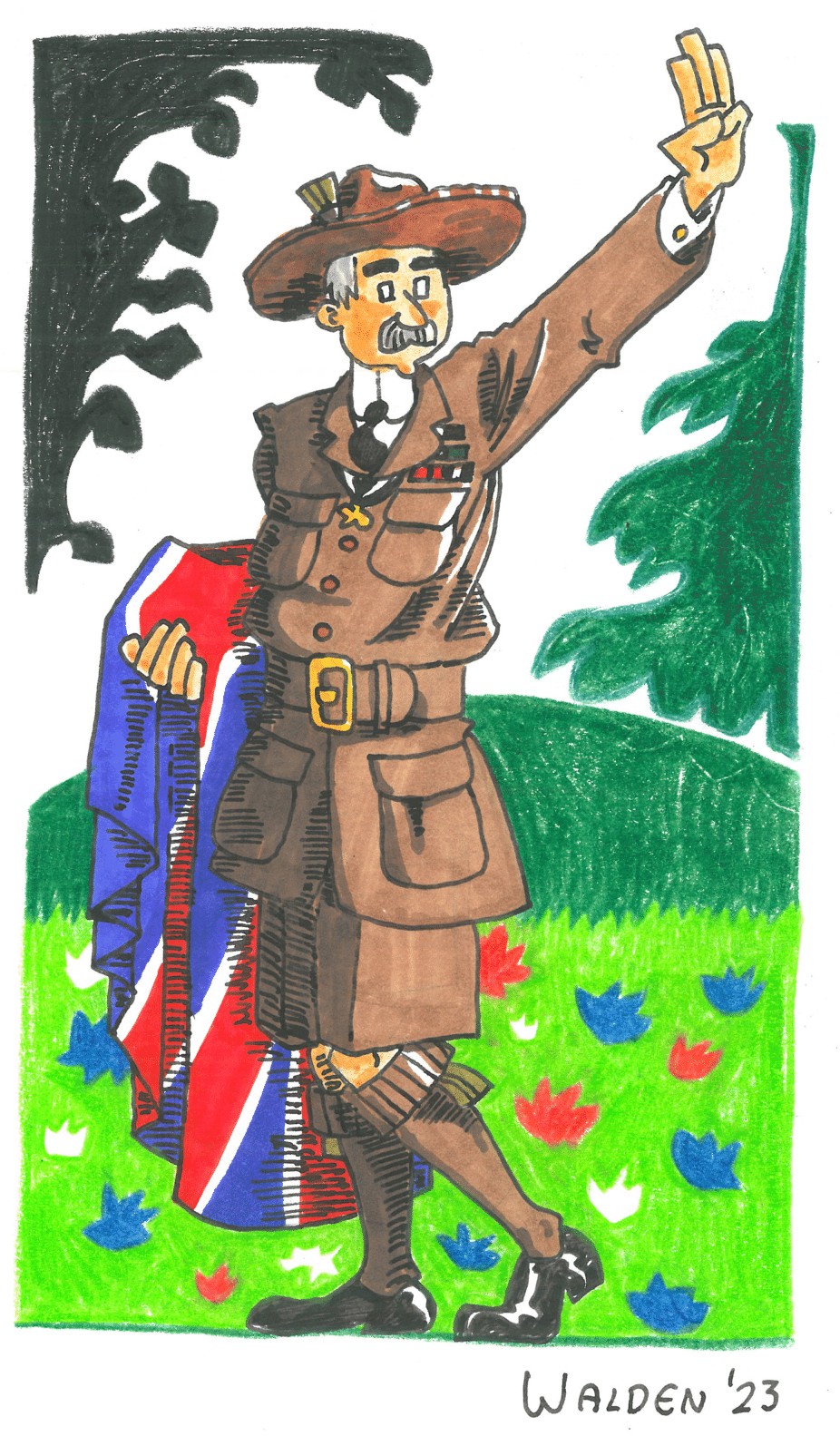ON MY HONOUR
The birth of the Boy Scouts during the years of the British imperial dominion (1907-1918)

“Robert Baden-Powell saluting”
Author’s drawing.
The year is 1907. The British Empire is the largest unitary political entity ever seen in history, but is struggling in wars in Africa. At the same time, the introduction of universal suffrage and workers' rights at home are leading to the politicization of social classes previously considered to lack sufficient moral qualities, creating tensions with the culture of the old ruling class. In this climate, high-ranking army officials like Lord Frederick Roberts create youth associations to prevent boys from succumbing to socialism, atheism, and vices such as smoking or opium. Thus, the Boys' Brigades and other associations are born, soon united in the National Service League (NSL), with the goal of creating better soldiers for the Empire and therefore better male citizens.
However, one military man, Sir Robert Baden-Powell, decorated from the Second Boer War, has a slightly different perspective: the Empire does indeed need better citizens, but war is harmful and it is not wise to teach it to young boys. He welcomes discipline, outdoor excursions, and physical exercise, but no weapons. B-P (as he is remembered today) therefore founds one of these youth brigades but gives it a different spirit, pacifist and centered on a model of independent and curious boys inspired not by the obedient and obtuse foot soldier but by the cavalry explorer (scout).
The first summer camp on Brownsea Island in 1907 is open to different social classes, in an interclassist perspective that does not exclude, at least voluntarily, the children of proletarians, and is a great success that will pave the way for the founding of the Boy Scouts.
There is pressure, but even in 1914, at the outbreak of World War I, the association does not participate in initiatives organized by the National Service League and limits itself to supporting civilians; thanks to this, when the insistence on militarism goes out of fashion in 1920s Britain, the NSL will be dissolved, while the Boy Scouts will continue, moving towards a future of changes.
Almici, Giovanni , Piccoli soldati o esploratori di sé stessi Il movimento dei Boy-Scouts degli albori e le accuse di militarismo
Baden Powell of Gilwell, Lord, Scouting for boys. The original 1908 edition, Dover , New York 2014.
Pryke, Sam-The Popularity of Nationalism in the Early British Boy Scot Movement, in “Social History”, Oct. 1998, Vol. 23, No. 3, pp.309-324.
Warren, Allen, Sir Robert Baden-Powell, the Scout Movement and Citizen Training in Great Britain, 1900-1920,in “The English Historical Review”, Apr. 1986, Vol. 101, No. 399, pp.376-398.
Per un maggior approfondimento storico e metodologico sullo scautismo, sul guidismo e sulle organizzazioni scout rimando al sito della Federazione Italiana dello Scautismo (FIS)
Giovanni Almici, studente di scienze storiche presso l’Università di Trento.
2025-03-03
Salvatore Ciccarello
